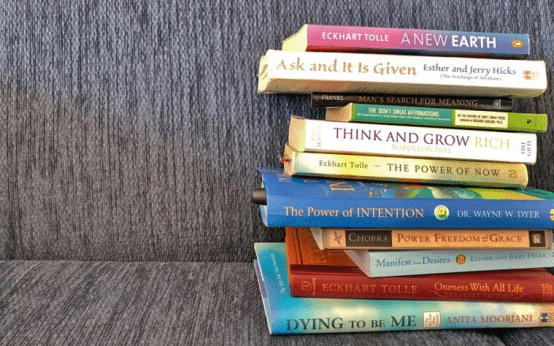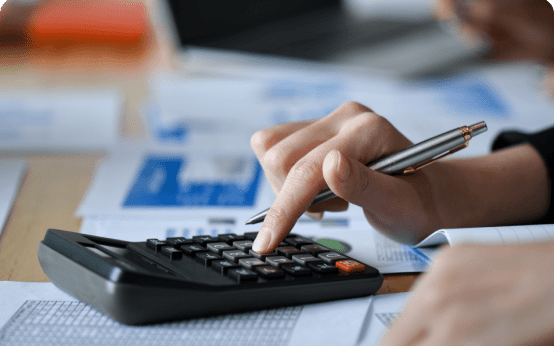
How do you control your spending? What about your investments?
There are different ways to answer these questions. After all, everyone knows which expenses are the most difficult to organize.
We all know that many people have difficulties when the subject is financial education. Besides not learning about the subject in school, statistics show that we have a lot to evolve in this area.
To have an idea, many faced the pandemic without having any emergency reserve.
Putting money together becomes more of a challenge when we talk about difficult times, like the Covid-19 pandemic. And to deal with this time in the best way, many people have shown more interest in financial education, according to a recent survey 41% started to research more about the topic over 2020, a trend that is expected to increase in the following years.
But even before thinking about making better use of money, it’s important to follow important steps to control spending. The best way to do this is to set up your personal budget.
Below we’ll explain how a personal budget works, why you should set one up, and tips on how to divide it up in the best way.
What’s a Personal Budget
A personal budget should account for all your expenses and investments. As difficult as it may be to get started, the important thing is to roll up your sleeves and write down everything you spend.
To make it easier, start with the current month. Write down the amount of your monthly salary and create columns in a spreadsheet to insert all your expenses for the month, such as fixed expenses, current expenses, etc.
What really matters when preparing your personal budget is to understand everything that goes into your budget and what comes out. This way you can understand and organize all your finances. This organization is essential so that you can plan your future, foreseeing how much you will have to save or spend to have new achievements – be it a high value good, have a good emergency reserve, increase your investments, etc.
Why should I organize my budget?
With a personal budget, you have greater predictability of how you can strive for great achievements.
This brings several benefits to your financial life. Besides being fully aware of how your money is being spent, with a well-developed personal budget you can determine when you want to buy that car you’ve always wanted, the purchase of important items for your daily life or even increase your assets.
When you have a follow-up of your expenses, it becomes easier:
- Understand where you need to save more in order to reach your goals;
- Separate your expenses by categories, so that you can have a vision of where you need to invest more or save more, in search of better balance and financial health;
- Write down your expenses in an easy and practical way, so that you always have a vision of your income and expenses;
- Avoid spending more than you earn;
- Always plan so that, at the end of the month, you have more money left over;
- Increase your ability to achieve important goals in life.
We depend on money to do many things in our lives. Therefore, the more control we have over everything we have at our disposal, the greater are our chances of investing in great achievements and having a more prosperous life.
How to start my personal budget
A spreadsheet is the best tool for creating and controlling your personal budget.
Each individual has his or her own way of dealing with money. But can you really tell if you are managing to use your income in the best possible way? Surely the spending spreadsheet will guide you to the best way to save and achieve your goals.
To begin with, keep in mind how much you receive each month. If you have a family, it is worth listing the salary of all those people at home who contribute to form the monthly income.
After that, you need to start listing everything you spend. In case you are just starting with your spreadsheet, take the time to rescue all your expenses within the current month: from the fixed ones, like water and electricity, to the more superfluous ones, like the coffee you drink at the bakery before going to work, for example.
If you have some debts that need to be paid, your personal budget should also contemplate them. A good way to better deal with all of them is to determine a deadline for the payment to be completed. After all, only with the debts paid off will you have room to build up your emergency reserve and organize for your next investments.
Ways to split your budget
In order for you to be better organized in setting up your personal budget, it’s important to have separation by categories, such as:
Fixed Expenses
These are expenses that are unavoidable and must be paid every month. In this category you can include water, electricity, gas, rent, in other words, everything that is responsible for you to keep your roof over your head and have a minimum amount of money to live on.
Variable Expenses
These are those expenses that we have during the month, but that are not necessarily mandatory. Do you know that cup of coffee we have before we start working? Or those weekend outings for leisure? In short, these are the types of expenses.
Many of these expenses go unnoticed by people, especially when they use their credit cards too much. The best way to have a complete overview of your expenses is to itemize all your variable expenses: from the subscription to online games, for example, to the weekend clubbing with friends. Don’t miss anything.
If you find that your variable expenses are eating up more of your income than you would like, it’s time to cut back.
The vast majority of the time, people want to cut them in their entirety. Be careful about this, after all, having fun is also something important in our lives. Just don’t let leisure expenses take up more of your monthly income than they should.
Start your personal budget now
If you don’t already have your expenses very well organized and structured, you need to start as soon as possible!
The key is not to put it off too long. Start gradually, with a simple spreadsheet, if necessary. If you have difficulties with technology, ask for help from someone who can at least structure a spreadsheet that is easy to visualize.
A little notebook, as useful as it may be, makes it difficult to write down and plan everything. The use of spreadsheets or applications for financial management makes it much easier because they perform calculations automatically and make it easier to see all your expenses and investments.
Understand your personal budget as a journey. In the beginning, it can be difficult to list all your expenses and propose self-control in order to save a good amount of money to achieve your goals. For you to be able to put into practice some of the lessons we have brought in this article, you need time. Everyone has their own time. The important thing is to have a personal budget as a way to reduce superfluous expenses and direct them to your goals.
In this sense, you can consider the consortium in different ways: to invest in studies and in your professional development, for example. Or, if you want to buy high-value goods, you can change cars or finally start buying the house of your dreams, without having to compromise your monthly income too much.
Was this article useful for you? If so, share it with your friends so that together we can help more people! And don’t forget to keep following the Finance ADX blog to check out other financial education tips.

 10 Personal Finance Books That Change Lives
10 Personal Finance Books That Change Lives  7 Budgeting Methods That Actually Work
7 Budgeting Methods That Actually Work  South Africa’s Capitec profit rises 84%
South Africa’s Capitec profit rises 84%